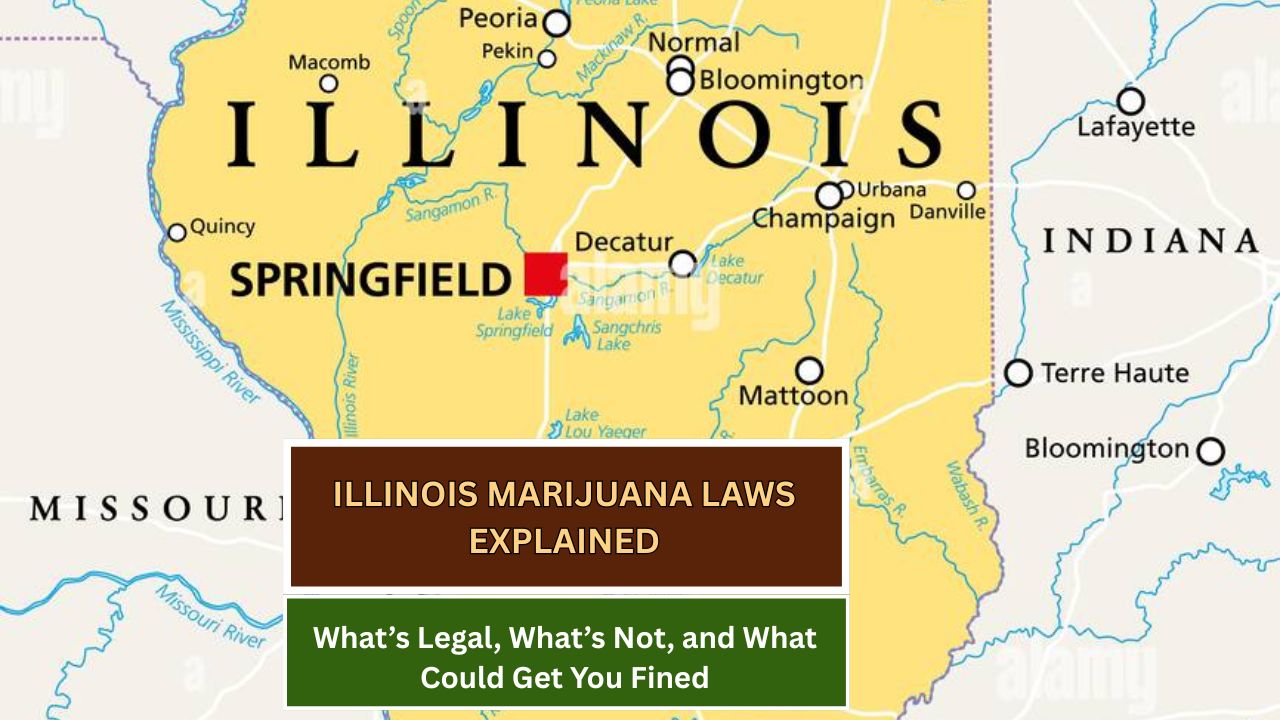As of 2025, marijuana is fully legal for both medical and recreational use in the state of Illinois. This legal shift, enacted through legislative action rather than a voter referendum, has transformed the state’s economy and criminal justice system—and made Illinois a national leader in cannabis reform.
When Did Weed Become Legal in Illinois?
Illinois made history in June 2019 when it passed the Cannabis Regulation and Tax Act, becoming the first U.S. state to legalize adult-use marijuana through legislation. The law officially went into effect on January 1, 2020, allowing adults aged 21 and over to buy and possess cannabis products for personal use.
What Are the Legal Possession Limits?
According to Illinois law, the following amounts are legal for adults aged 21 and older:
- Illinois residents can possess:
- Up to 30 grams of cannabis flower
- Up to 5 grams of cannabis concentrate
- Cannabis-infused products with up to 500 milligrams of THC
- Non-residents can possess:
- Up to 15 grams of flower
- Up to 2.5 grams of concentrate
- Edibles with up to 250 milligrams of THC
Can You Grow Weed at Home in Illinois?
Only registered medical marijuana patients are allowed to cultivate up to five cannabis plants per household.
Recreational users are prohibited from home cultivation. Violating this rule may result in a $200 civil fine.
Where Can You Use Cannabis in Illinois?
Despite the law allowing possession and purchase, public use remains illegal. Consumption is restricted to:
- Private residences (with landlord consent)
- Licensed consumption lounges (limited and regulated)
You cannot use cannabis:
- In public places (streets, parks)
- On school grounds
- In a motor vehicle (even as a passenger)
- In federally subsidized housing (due to federal prohibition)
How Has Legalization Affected the Economy?
The economic impact has been staggering. In 2024 alone, Illinois:
- Generated over $2 billion in total cannabis sales
- Collected over $490 million in state tax revenue
- Saw $385 million in adult-use sales from out-of-state visitors
The bulk of the revenue comes from a tiered tax structure, with higher THC content leading to higher taxes.
What Are the Legal Penalties for Breaking the Rules?
Even in a legal market, penalties still apply for overstepping possession limits:
- 30–100 grams (first offense): Class A misdemeanor; up to 1 year in jail and $2,500 fine
- Subsequent offenses or possession over 100 grams may lead to felony charges
What About Expungements and Social Equity?
Illinois took a progressive step by committing to clear the records of people previously convicted for low-level marijuana offenses. By 2025, the state aims to expunge up to 700,000 cannabis-related records.
Additionally, social equity programs offer funding and license application support to communities disproportionately affected by the War on Drugs.
Check eligibility via New Leaf Illinois
Federal Law Still Applies
Despite state legalization, marijuana remains illegal under federal law. That means:
- It cannot be transported across state lines
- It cannot be used or possessed on federal property
- Federal background checks or job applications may still be affected
Conclusion
Weed is legal in Illinois—but only if you follow the rules. Adults can legally purchase and possess cannabis within state-imposed limits, but growing at home is mostly reserved for medical patients, and public use is still strictly prohibited. As sales and tax revenues continue to climb, Illinois remains at the forefront of the evolving cannabis conversation.
This article has been carefully fact-checked by our editorial team to ensure accuracy and eliminate any misleading information. We are committed to maintaining the highest standards of integrity in our content.

Outside of work, he enjoys playing chess, following cricket, and writing short stories. His commitment to integrity and in-depth analysis strengthens OTE News’ mission of providing trustworthy journalism.




